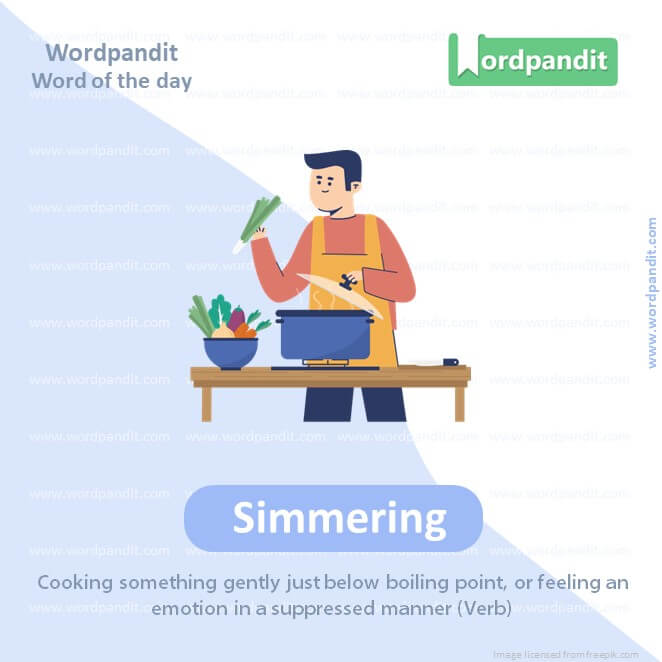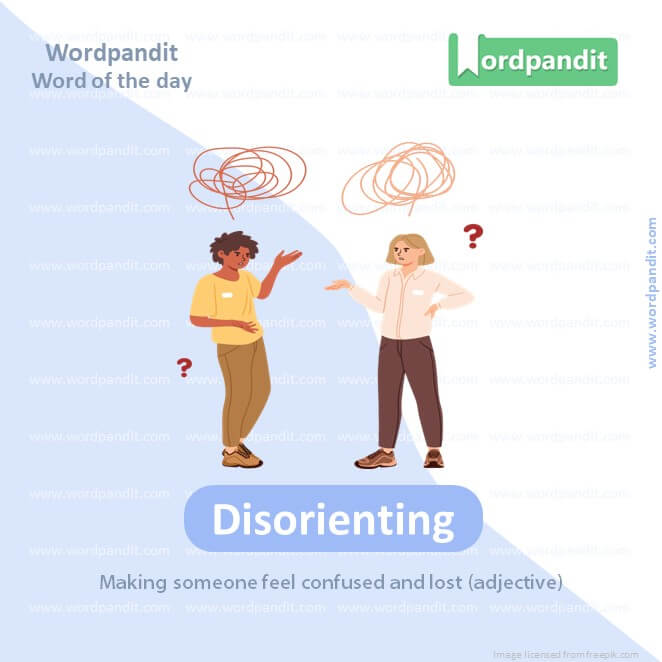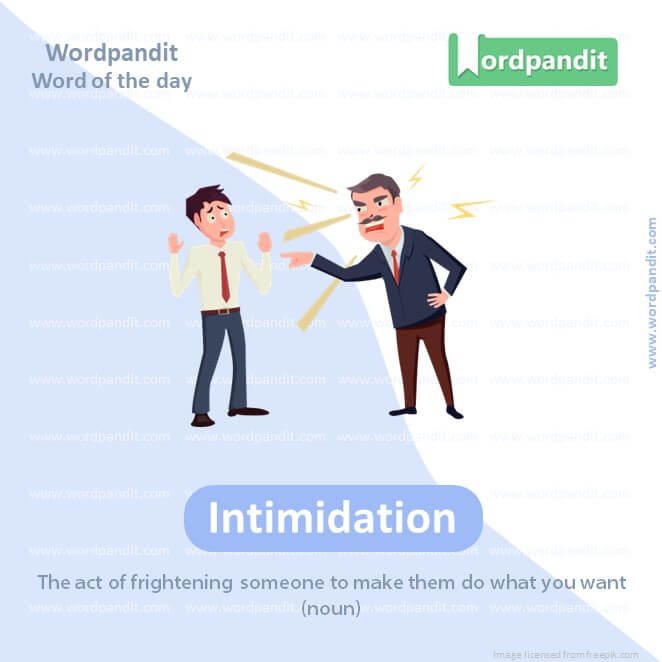Daily Vocabulary Words: List of Daily Used Words in Leading International Newspapers
Hi there. Welcome to this special section @ Wordpandit.
Our endeavour here is very simple: to highlight important daily vocabulary words, which you would come across in leading newspapers in the country. We have included the following newspapers in our selection:
• The New York Times
• The Washington Post
• Scientific American
• BBC
• The Guardian
• Psychology Today
• Wall Street Journal
• The Economist
We are putting in extensive work for developing your vocabulary. All you have got to do is be regular with this section and check out this post on a daily basis. This is your repository of words that are commonly used and essentially, we are posting a list of daily used words. Hence, this has significant practical application as it teaches you words that are used commonly in leading publications mentioned above.
Visit the website daily to learn words from leading international newspapers.
WORD-1: Subversion
CONTEXT: the same political ilk for why the long-term costs of such subversion of the Constitution outweigh the short-term benefits.
SOURCE: New York Times
EXPLANATORY PARAGRAPH: Imagine you have a rule to always eat vegetables, but someone secretly tells you it’s okay not to. Subversion is like trying to change or break the rules in a sneaky way, going against what’s supposed to happen. It’s like a mischievous game where someone tries to do things differently without anyone noticing!
MEANING: The act of trying to undermine or secretly change established systems, rules, or authority. (Noun/Verb)
PRONUNCIATION: Sub-ver-sion
SYNONYMS: Sabotage, Undermine, Saboteur, Treachery, Insurrection, Rebellion, Overtake
USAGE EXAMPLES:
1. The spy’s mission was one of subversion, aiming to disrupt the enemy’s plans without being detected.
2. The subversion of the online security system went unnoticed until it was too late.
3. The rebels were accused of subverting the government’s authority and promoting unrest.
4. The hacker attempted subversion by infiltrating the computer network to access classified information.

WORD-2: Simmering
CONTEXT: The most recent escalation in the simmering feud between federal officials and Mr. Abbott over the state’s border measures came into greater public view after three migrants drowned in the Rio Grande by Eagle Pass.
SOURCE: New York Times
EXPLANATORY PARAGRAPH: Picture a pot on the stove with water just starting to bubble. Simmering is like emotions or situations that are heating up slowly, not boiling over yet but getting warmer. It’s like a feeling that’s building up, waiting to burst out like a warm, cozy pot of soup.
MEANING: Cooking something gently just below boiling point, or feeling an emotion in a suppressed manner (Verb).
PRONUNCIATION: Sim-mer-ing
SYNONYMS: Brewing, Smoldering, Developing, Building, Heating up, Intensifying, Fomenting
USAGE EXAMPLES:
1. The tension in the room was simmering as the two sides prepared for negotiation.
2. His simmering anger finally erupted after weeks of frustration.
3. The simmering excitement in the crowd reached its peak as the concert started.
4. The simmering conflict between the neighbors escalated into a heated argument.

WORD-3: Encoding
CONTEXT: the express purpose of encoding white supremacy into the state’s DNA.
SOURCE: New York Times
EXPLANATORY PARAGRAPH: Think of a secret language that only you and your friend understand. Encoding is like turning information into a special code, so only those who know the code can understand it. It’s like having a secret way to talk that keeps your messages safe.
MEANING: Converting information into a coded form for secure transmission or storage. (Noun/Verb)
PRONUNCIATION: En-cod-ing
SYNONYMS: Ciphering, Cryptography, Encryption, Concealing, Deciphering, Concealing, Securing
USAGE EXAMPLES:
1. The spy used advanced encoding techniques to send confidential messages.
2. The software developer was responsible for encoding sensitive data to protect it from unauthorized access.
3. Encoding the document ensured that only authorized individuals could access its contents.
4. The ancient civilization used unique symbols for encoding their historical records.
WORD-4: Miserably
CONTEXT: It’s a stress test for a potential constitutional crisis — and we’re all failing miserably.
SOURCE: New York Times
EXPLANATORY PARAGRAPH: Imagine a day when everything goes wrong, and nothing seems to make you happy. Miserably is like feeling very, very sad or unhappy, as if everything is going the opposite of what you want. It’s like having a gloomy cloud hanging over you.
MEANING: In a very unhappy or unfortunate manner. (Adverb)
PRONUNCIATION: Miz-er-a-blee
SYNONYMS: Unhappily, Woefully, Dismally, Wretchedly, Sorrowfully, Melancholically, Dejectedly
USAGE EXAMPLES:
1. After losing the game, the team sat miserably in the locker room.
2. Despite their efforts, the project failed miserably, leaving everyone disappointed.
3. She looked at her burnt cake miserably, realizing it was not salvageable.
4. The rainy weather made the outdoor event end miserably, with everyone soaked and cold.
WORD-5: Effusive
CONTEXT: one that’s purposely less effusive than the one you posted for your other friend.
SOURCE: New York Times
EXPLANATORY PARAGRAPH: Think of a waterfall with water gushing out freely. Effusive is like expressing your feelings in a big, overflowing way, like a waterfall of words or emotions. It’s like being super enthusiastic and not holding back your excitement or joy.
MEANING: Expressing emotions or feelings in an unrestrained, overflowing manner. (Adjective)
PRONUNCIATION: Ef-fu-sive
SYNONYMS: Overflowing, Gushing, Enthusiastic, Exuberant, Gushy, Demonstrative, Uninhibited
USAGE EXAMPLES:
1. The actress received an effusive applause from the audience for her outstanding performance.
2. His effusive gratitude made everyone feel appreciated for their hard work.
3. The student’s effusive praise for the teacher’s guidance warmed everyone’s hearts.
4. The award-winning chef shared an effusive description of the delicious dish he had prepared.
WORD-6: Ruminating
CONTEXT: in Maryland, explained how a former friend would use their text chats as a way to constantly shift from hot to cold — acting friendly at school, then leaving her texts unanswered, then texting all night in minute-to-minute flurries, then ghosting her for days on end, leaving her on her phone and in her feelings, ruminating (something girls are more prone to) on the unanswered messages.
SOURCE: New York Times
EXPLANATORY PARAGRAPH: Imagine a cow chewing cud slowly and thoughtfully. Ruminating is like when you think about something deeply and carefully, just like a cow carefully processes its food. It’s like turning ideas over and over in your mind.
MEANING: Engaging in deep and contemplative thinking, often about a specific topic or problem. (Verb)
PRONUNCIATION: Ru-mi-nat-ing
SYNONYMS: Pondering, Contemplating, Reflecting, Meditating, Mulling over, Deliberating, Brooding
USAGE EXAMPLES:
1. After the argument, she spent hours ruminating on what had been said.
2. The scientist was often found ruminating in his lab, searching for innovative solutions.
3. The author sat in the garden, ruminating on the plot twists for the next novel.
4. Instead of making a quick decision, he preferred ruminating on the various options available.

WORD-7: Disorienting
CONTEXT: I believe that the whiplash from these events has been particularly disorienting and enraging for younger Americans, for whom this may be their first experience of such a backlash.
SOURCE: New York Times
EXPLANATORY PARAGRAPH: Imagine spinning around really fast until you’re not sure which way is up. Disorienting is like feeling confused and lost, like you don’t know where you are or what’s happening. It’s like being in a maze without a map.
MEANING: Making someone feel confused and lost (adjective).
PRONUNCIATION: Dis-or-i-ent-ing
SYNONYMS: Confusing, Bewildering, Baffling, Dizzying, Perplexing, Disturbing, Unsettling
USAGE EXAMPLES:
1. The sudden change in direction left the hikers feeling disoriented in the dense forest.
2. The disorienting effect of the optical illusion left the audience amazed.
3. The unfamiliar surroundings were disorienting for the travelers in the foreign city.
4. The unexpected twist in the story had a disorienting impact on the readers.
WORD-8: Covenants
CONTEXT: The Color of Law: A Forgotten History of How Our Government Segregated America” — restrictive covenants, the practice of putting clauses in deeds to forbid the selling or renting of real estate to Black people, spread across the country.
SOURCE: New York Times
EXPLANATORY PARAGRAPH: Think of promises made by friends who pinky swear to always be there for each other. Covenants are like special promises or agreements that people make, like a super serious pinky swear but often written down. It’s like saying, “I promise to do this, and you promise to do that.”
MEANING: Formal agreements or promises, often written, regarding specific terms or conditions. (Noun)
PRONUNCIATION: Cov-e-nants
SYNONYMS: Contracts, Agreements, Pacts, Commitments, Treaties, Bonds, Undertakings
USAGE EXAMPLES:
1. The business partners signed covenants to ensure fair and ethical practices.
2. Marriage vows are considered covenants that symbolize a lifelong commitment.
3. The nations entered into covenants to promote peace and cooperation.
4. The legal document outlined the covenants agreed upon by both parties involved.

WORD-9: Intimidation
CONTEXT: the Mississippi Plan in advance of the state’s 1875 elections to use fraud and the intimidation of Black voters, including through violence, to retake state power from progressives.
SOURCE: New York Times
EXPLANATORY PARAGRAPH: Picture a big, scary-looking shadow that makes you feel afraid. Intimidation is like making someone feel scared or nervous on purpose. It’s like using a big, spooky presence to make others do what you want, even if it’s not very nice.
MEANING: The act of frightening someone to make them do what you want (noun).
PRONUNCIATION: In-tim-i-da-tion
SYNONYMS: Bullying, Coercion, Threatening, Menacing, Frightening, Harassment, Intimidation
USAGE EXAMPLES:
1. The witness reported feeling intimidation during the interrogation by the aggressive lawyer.
2. The bully’s intimidation tactics made the students afraid to go to school.
3. Workplace intimidation is a serious issue that can negatively impact employees’ well-being.
4. The protesters faced intimidation from the authorities but stood firm in their cause.

WORD-10: Stinging
CONTEXT: Passive aggression isn’t just “No offense, but” before delivering a stinging insult.
SOURCE: New York Times
EXPLANATORY PARAGRAPH: Imagine a bee giving you a little poke that makes you say “ouch!” Stinging is like feeling a sharp, quick pain, just like when a bee stings you. It’s like a tiny, sudden hurt that makes you notice it right away.
MEANING: Causing a sharp, sudden pain or discomfort, often like the feeling of being pricked by a sharp object (Adjective/Verb).
PRONUNCIATION: Sting-ing
SYNONYMS: Pricking, Smarting, Biting, Piercing, Nipping, Sharp, Acute
USAGE EXAMPLES:
1. The stinging sensation on her finger reminded her to be careful with the thorny plant.
2. The cold wind brought a stinging feeling to their faces as they walked outside.
3. The criticism had a stinging effect, causing him to reconsider his actions.
4. The athlete felt a stinging pain in his ankle after twisting it during the game.
Vocabulary Hard Words
The experience of unraveling the depths of language learning often leads us to ‘vocabulary hard words’. These challenging jargons might seem daunting initially, but with the right learning strategies, the enigma of ‘vocabulary hard words’ can turn into an enticing quest. But how can these ‘vocabulary hard words’ be learned effectively?
Firstly, to master ‘vocabulary hard words’, it’s vital to break down the process into manageable steps. Instead of tackling several words at once, focus on understanding a few each day. This gradual approach ensures effective retention and understanding.
Multimedia resources tremendously aid in comprehending ‘vocabulary hard words’. Movies, podcasts, or even music in the target language contribute a comprehensive perspective. They provide real-life contexts and usages of ‘vocabulary hard words’, making them more understandable and less intimidating.
The incorporation of memory-enhancing techniques, such as flashcards or digital apps, can significantly bolster the retention of ‘vocabulary hard words’. Such tools encourage active recall, helping to cement these words into your long-term memory. Mnemonic devices can also aid in making these words more approachable by associating the hard words with relatable images or stories.
Practice is decisive when learning ‘vocabulary hard words’. Using these words in your conversations, written communications, or even social media posts will facilitate a robust understanding and recall.
Finally, do not worry about making mistakes while using ‘vocabulary hard words’. Mistakes are essential stepping stones in the learning process. They provide insights into areas that need more focus and help refine your grasp over these words.
In conclusion, grasping ‘vocabulary hard words’ is undoubtedly a challenging task but not an insurmountable one. With the aid of effective strategies including graded learning, multimedia resources, memory-enhancing tools, and regular practice, the process of mastering ‘vocabulary hard words’ can become an engaging and rewarding journey.











